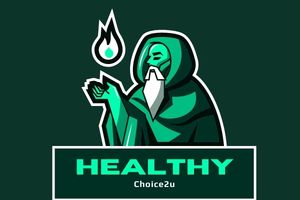Best Treatment Options for Depression
Depression is a prevalent mental health condition that affects millions of people worldwide. It can manifest in many different ways and affect people in different degrees, but it can still be a debilitating and challenging mental illness. It can impact one’s ability to lead a fulfilling life, maintain healthy relationships, and have a positive outlook on the future. Seeking treatment for depression is crucial, and there are various options available. This article aims to provide information on the Best Treatment for Depression.
1. Psychotherapy: One of the most effective treatments for depression is psychotherapy. Different types of interventions, such as cognitive-behavioral therapy (CBT), interpersonal therapy, and psychodynamic therapy, can help people manage their symptoms. CBT is a goal-oriented and problem-solving approach that focuses on identifying negative thoughts and behaviors that are associated with depression. People with depression learn techniques to challenge and reframe these automatic negative thoughts, which can lead to improved mood and behavior. Interpersonal therapy is another form of psychotherapy, which focuses on relationships with others and interpersonal concerns that are contributing to depression and aims to improve communication and relationship skills used. Psychodynamic therapies are also another type of therapy which aim to address unresolved conflicts and help increase self-awareness.
2. Medication: Antidepressants are the most commonly prescribed medications for depression. These drugs work by regulating neurotransmitters in the brain, which can improve mood and reduce symptoms of depression. Some of the antidepressants include SSRIs such as Prozac, Zoloft, and Lexapro. These medications usually take two to four weeks to work but can have significant side effects. Working with a mental health professional to find the right medication and the right dosage may be required.
3. Exercise: Exercise is a well-known and effective treatment for depression. Exercise can provide an overall improvement in physical and mental health. The release of endorphins during exercise provides a feeling of well-being and improved mood. Research indicates that regular exercise works just as well as medication in relieving symptoms of depression. Exercise can include anything from running, walking, swimming, or doing yoga, so aim to find activities you enjoy.
4. Self-care: It may be easy to neglect oneself when feeling down but incorporating self-care practices can help reduce the impact of depression. Self-care activities can include taking healthy meals, getting enough rest, socializing with loved ones, engaging in hobbies or doing activities that bring you joy and relaxation. It can be just as important as getting professional treatment, as it can help mitigate some of the symptoms of depression.
5. Alternative Therapies: Alternative therapies that have been found to be effective in treating depression include acupuncture, meditation, and massage therapy. In acupuncture, hair-thin needles are inserted into specific points on the body to stimulate the release of endorphins and other balance hormones, helping to relieve symptoms of depression. Meditation and mindfulness-based interventions have been found to be an effective means of reducing symptoms of depression. Massage therapy is another alternative therapy that can help improve mood and contribute to reducing muscle tension, which is often associated with depression.
Conclusion:
Depression can make life difficult, but there are various treatments available that can help manage symptoms and provide relief. Psychotherapy, medication, regular exercise, self-care, and alternative therapies are all valid treatments. It’s essential to work with a mental health professional to choose the best approach that works for one’s circumstances. By taking action and seeking treatment, people with depression can lead fulfilling and enjoyable lives.



